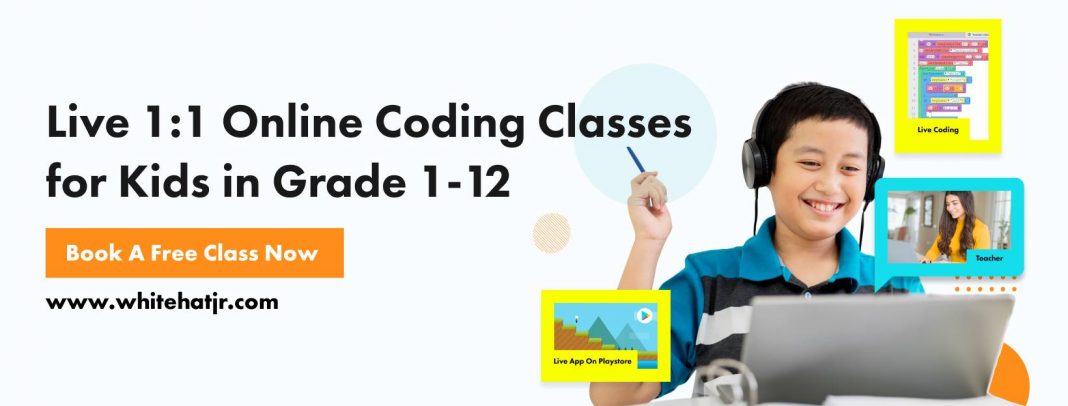Digital learning has taken a new turn in India – this time with coding classes as a niche for 6-year-olds. With the shutting of schools in lockdown, pushy Indian parents got a fresh excuse to make their children learn coding to cope up with the ‘rat race’ of life. BYJU’s acquired WhiteHat Jr. is currently the trending educational-technology startup, dedicated to teaching coding to children. While teaching coding in itself is not an issue, the fact that the company — and ambitious parents — think that children as young as six-years need to learn it (or be forced to by their parents), is a massive problem.
WhiteHat Jr. and its marketing gimmicks – Wolf Gupta
Founded in 2018 by Karan Bajaj, WhiteHat Jr is an ed-tech platform that teaches students coding through one-on-one video classes with instructors. The startup has been in news ever since ed-tech unicorn BYJU’S acquired it for USD 300 million.

Photo credits: Analyticssteps
It also offers “AI courses” for children aged six to 14 years. The app helps children learn computer programming and encourages them to create games, animations, applications and more. The subjects range from the data structure, app and game development to machine learning and space technology. With a live one-on-one online teaching format and a thoroughly researched curriculum, the start-up aims to empower children so that they view themselves as creators.
Recently, the ed-tech start up unveiled ‘Wolf Gupta’ as one of its coding genius.
“12-year Old Wolf Gupta learnt AI to get Rs. 1.2 cr job from Google while other kids his age didn’t know what to do after school. Coding makes your kids entrepreneurs and scientists in the new world. World’s first 1:1 AI coding course for kids. Free Trial. Age 6-18 only,” reads the post shared on LinkedIn.
The fact that his age and income displayed differently on the LinkedIn posts raised quite eyebrows. Making it dubious if Wolf Gupta is at all a real-life kid or it is just a marketing trick for the company. Netizens shared screenshots on Twitter, displaying how WhiteHat Jr is ‘misleading’ parents and students with its latest marketing gimmick.
What the law has to say on this?
The Indian advertising market as a whole is regulated and controlled by a non-statutory body, the Advertising Standards Council of India (ASCI).
An advertisement is called deceptive when it misleads people, alters reality and affects buying behaviour.
False advertising is any published claim that is deceptive or untruthful. Misleading advertising is any published claim that gives a consumer an incorrect understanding of the product. “Truth” refers to essentially that customers have the right to know what they are buying, and that all necessary information should be on the label as well as in the content of advertisement should be correct.
Furthermore, section 2 (28) of the Consumer Protection Act, 2019 defines misleading advertisements as an advertisement, which –
- (i) falsely describes such product or service; or
- (ii) gives a false guarantee to, or is likely to mislead the consumers as to the nature, substance, quantity or quality of such product or service; or
- (iii) conveys an express or implied representation which, if made by the manufacturer or seller or service provider thereof, would constitute an unfair trade practice; or
- (iv) deliberately conceals important information.
There are various provisions mentioned in the Consumer Protection Act 2019 with regards to false and misleading advertisements. A redressal mechanism for misleading advertisements is also provided under the act.
So, if proved that the company is misleading consumers under the pretext of ‘Wolf Gupta’, it can face serious legal repercussions.
A tool to pressurize children – has ‘Sharmaji Ka Beta’ gone too far?
Whether, a decade ago, it was about joining Aakash academy to become the best of IITians or today, it is coding for six-year-olds, Indian parents cannot dream anything less than MIT (Massachusetts Institute of Technology) and it, of course, has to start young.
Every hour one student commits suicide in India, with about 28 such suicides reported every day, according to data compiled by the National Crime Records Bureau (NCRB).
One cannot deny the endless pressure that Indian students go through to win the academic race of life. From topping the exams to joining A1 institutes, students are burdened at a very young stage in India.
The introduction of coding to a six-year-old might have the cherry points but then let’s be clear, coding is not a life skill. It is not even skating or horse riding, which a six-year-old will voluntarily want to learn — no matter how hard you try to code it into their system.
The constant comparing and badgering to figure out everything from such a young age can lead to severe mental health distress.
The marketing is clearly directed at Indian parents and a fine target they are. Forever on the quest to make their children overachievers in every field, or to just impose the rather heavy emotional baggage of unfulfilled dreams on them, Indian parents are generally a class apart.
Monetizing the education sector
Ever since the shift to a virtual mode of learning, the new productivity is to learn new courses. Ed-tech companies, knowing how easy targets Indian parents are, have persuaded them to feel that they are not good parents if their child does not learn to code.
From Kumon to Abacus to Byju’s to Fiitjee to Trinity and now WhiteHat Jr., the education sector has been virtualized and monetized in a great manner.
Starting from six-year-olds, over 250000 students have registered with WhiteHat Jr. Making an extravagant, cut-throat competition, it has set milestones for children to achieve – from a personal website, game developer certificate, young visionary, app developer certificate, Silicon Valley challenge to 18 under 18.
The escalating monetization of the education sector has made gullible Indian parents spend thousands and lakhs of rupees and create an unhealthy, aggressive environment for their children. This poses an imperative question for the future of students in India – learning but at what cost?
Call it a satire because six-year-olds are learning coding on WhiteHat Jr. and 26-year-olds are making teams on Dream11.

